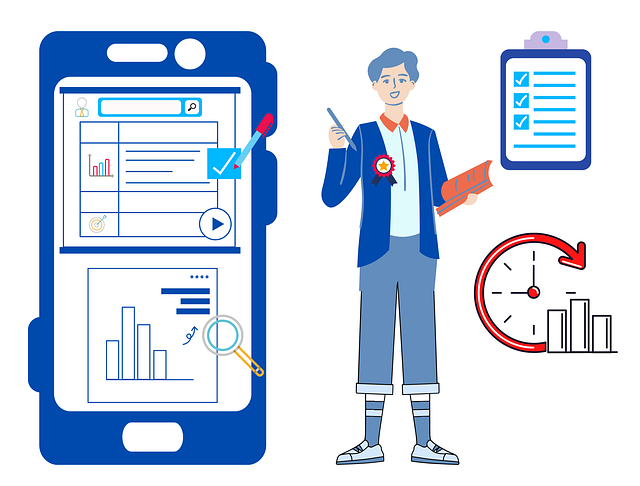AI and machine learning are transforming loyalty programs by analyzing customer data in real-time, providing personalized experiences at scale, and detecting potential fraud. Similarly, businesses are adopting AI staff time theft monitoring systems to automate attendance tracking, minimize errors, and promote accountability among employees, leading to increased productivity and data-driven decision-making. Furthermore, these advanced technologies help optimize loyalty programs by identifying patterns and anomalies in employee interactions, enabling companies to enhance program effectiveness, streamline processes, and strengthen customer relationships.
Data engines are transforming loyalty programs by unlocking the power of customer insights. In this article, we explore how these powerful tools, enhanced by AI, can significantly improve program effectiveness. From optimizing staff time management through intelligent scheduling and automation to implementing robust anti-theft measures via advanced monitoring systems, data engines revolutionize loyalty initiatives. Discover how businesses are leveraging AI to combat staff inefficiencies and time theft, ensuring programs deliver maximum value.
- Understanding Data Engines and Their Role in Loyalty Programs
- AI's Impact on Efficient Staff Time Management
- Integrating Monitoring Systems to Combat Time Theft
Understanding Data Engines and Their Role in Loyalty Programs

Data engines are powerful tools that leverage artificial intelligence (AI) and machine learning algorithms to analyze vast amounts of customer data, providing insights that can transform loyalty programs. Unlike traditional methods reliant on manual data collection and analysis, which can be time-consuming and prone to human error, AI-driven data engines offer a more efficient, accurate approach. These systems can monitor customer interactions in real-time, identifying patterns and trends that reveal valuable information about consumer behavior, preferences, and needs.
By integrating data engines into loyalty programs, businesses gain the ability to personalize experiences at scale. For example, these engines can automatically categorize customers based on their purchase history and engagement levels, enabling targeted marketing campaigns. Furthermore, AI staff time theft monitoring systems, powered by such data engines, can help identify anomalies in customer behavior, potentially indicating fraudulent activities or staff misconduct. This real-time oversight enhances program integrity and ensures that incentives are rewarded to genuine loyal customers.
AI's Impact on Efficient Staff Time Management

In today’s digital era, businesses are leveraging AI to optimize their operations, and staff time management is no exception. AI staff time theft monitoring systems have emerged as powerful tools to enhance efficiency and reduce productivity losses. By utilizing machine learning algorithms, these systems can automatically track and analyze employee attendance, ensuring accurate records and identifying any discrepancies or patterns of absence that might indicate theft or misconduct. This not only saves valuable time for HR departments but also provides data-driven insights to make informed decisions.
Furthermore, AI can streamline the entire process by automating tasks such as clock-in/out monitoring, leave requests, and shift scheduling. This level of automation reduces administrative burdens, minimizes human errors, and allows staff to focus on their core responsibilities. As a result, businesses experience improved overall productivity while fostering a culture of trust and accountability among employees.
Integrating Monitoring Systems to Combat Time Theft

In today’s digital era, businesses are recognizing the immense value of data-driven insights for optimizing their operations, and loyalty programs are no exception. Integrating advanced AI staff time theft monitoring systems into these programs is a game-changer. By leveraging AI technology, companies can effectively combat time theft, ensuring that employee activities align with program goals. These monitoring systems offer real-time analytics, allowing businesses to identify inefficiencies and make data-backed adjustments to enhance overall loyalty program effectiveness.
AI staff time theft monitoring systems analyze patterns and anomalies in workforce data, providing valuable insights into how employees interact with the loyalty program. This enables companies to pinpoint areas where time might be misused or misallocated. With such insights, businesses can implement targeted strategies to streamline processes, incentivize desired behaviors, and ultimately strengthen the bond between customers and the brand, fostering greater loyalty.
Data engines play a pivotal role in revolutionizing loyalty program effectiveness by leveraging AI for efficient staff time management and integrating robust monitoring systems to combat time theft. These innovations not only enhance program performance but also foster a more secure and productive environment, ensuring businesses can maximize the value of their customer relationships. By embracing these technologies, companies can navigate the complex landscape of loyalty programs with greater agility and success.
